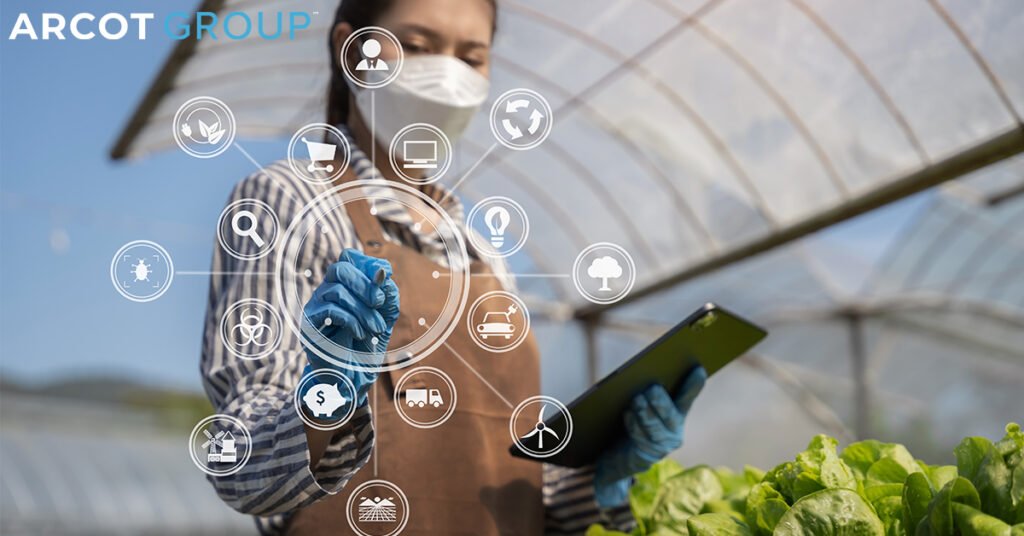In the ever-evolving landscape of the food industry, technology has emerged as a catalyst for transformative change. Among the most influential technologies are Artificial Intelligence (AI) and Machine Learning (ML), which are revolutionizing the way the industry operates. From farm to fork, these technologies are creating a seismic shift in how food is produced, distributed, quality-controlled, and experienced by consumers. This blog delves into the profound impact of AI and ML in transforming the food industry.
The Food Industry: A Realm of Opportunities
The food industry is vast and multifaceted, encompassing everything from agriculture and food production to distribution, retail, and consumer engagement. The challenges within this industry include fluctuating consumer preferences, supply chain complexities, quality control concerns, and sustainability imperatives. AI and ML offer innovative solutions that address these challenges and create new avenues for growth.
Smart Agriculture and Precision Farming:
AI and ML technologies is reshaping the way agriculture in the world. With the help of sensors, data collection, and predictive analytics, farmers can make informed decisions that optimize crop yield and resource utilization. By analyzing historical and real-time data, AI algorithms predict optimal planting times, and irrigation schedules, and even identify potential disease outbreaks. Precision agriculture ensures that every acre of land is utilized efficiently, reducing resource waste and maximizing yield.
Supply Chain Optimization:
In the food industry, an efficient supply chain is crucial to minimize food waste, ensure timely delivery, and meet customer demands. AI and ML algorithms analyze historical data, market trends, and consumer preferences to predict demand patterns accurately. This enables businesses to optimize inventory levels, reduce overstocking and understocking, and streamline distribution logistics. By enhancing supply chain visibility, these technologies lead to better resource management and reduced operational costs.
Quality Control and Food Safety:
Maintaining consistent product quality and ensuring food safety is paramount in the food industry. AI and ML are used to monitor and control various stages of production and packaging. Machine Learning algorithms can identify defects, anomalies, or contamination in real time, preventing substandard products from reaching consumers. Automated quality control processes not only uphold industry standards but also safeguard consumer health and trust.
Personalized Nutrition and Menu Customization:
The demand for personalized experiences has extended to the food industry. AI-driven solutions analyze consumer data, such as dietary preferences, allergies, and nutritional requirements, to offer tailored menu suggestions. Restaurants and food delivery services can leverage these insights to create personalized offerings that resonate with individual customers. This not only enhances customer satisfaction but also encourages healthier eating choices.
Enhancing Customer Experience:
AI-powered technologies like chatbots and virtual assistants are transforming customer interactions in the food industry. Chatbots can provide real-time assistance to customers, helping them place orders, answer queries, and provide information about ingredients or allergens. Virtual assistants use AI to understand customer preferences and recommend menu items that align with their tastes. These technologies streamline customer engagement, increase order accuracy, and improve overall satisfaction.
Sustainable Practices:
Sustainability is a growing concern in the food industry. AI and ML play a pivotal role in identifying and implementing sustainable practices. By analyzing data related to energy consumption, waste generation, and resource utilization, businesses can identify areas for improvement. For instance, AI algorithms can optimize energy-intensive processes in food production, reduce water usage, and minimize food waste. This not only contributes to environmental conservation but also aligns with the values of eco-conscious consumers.
Conclusion: Transforming the Future of the Food Industry
In conclusion, the integration of AI and ML in the food industry marks a significant shift in how the entire ecosystem operates. These technologies offer solutions that address challenges, enhance efficiency, and improve consumer experiences. From optimizing agricultural practices to delivering personalized menu recommendations, AI and ML are reshaping every facet of the industry.
As the food industry continues to evolve, businesses that embrace AI and ML are better positioned to thrive in a competitive market. By harnessing the power of data-driven insights, automation, and predictive analytics, companies can unlock new levels of efficiency, sustainability, and innovation. The intersection of technology and culinary arts is ushering in a new era, where food production and consumption are more intelligent, informed, and aligned with consumer preferences than ever before.
By investing in AI and ML applications, the food industry is paving the way for a future where efficiency, quality, and sustainability coexist harmoniously to cater to the dynamic needs of consumers and the demands of a rapidly changing world.




